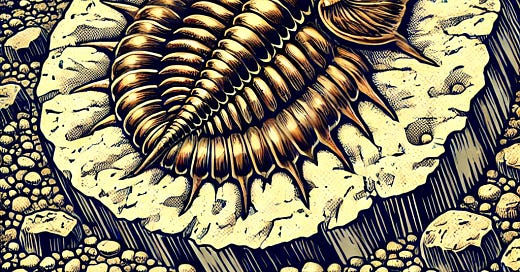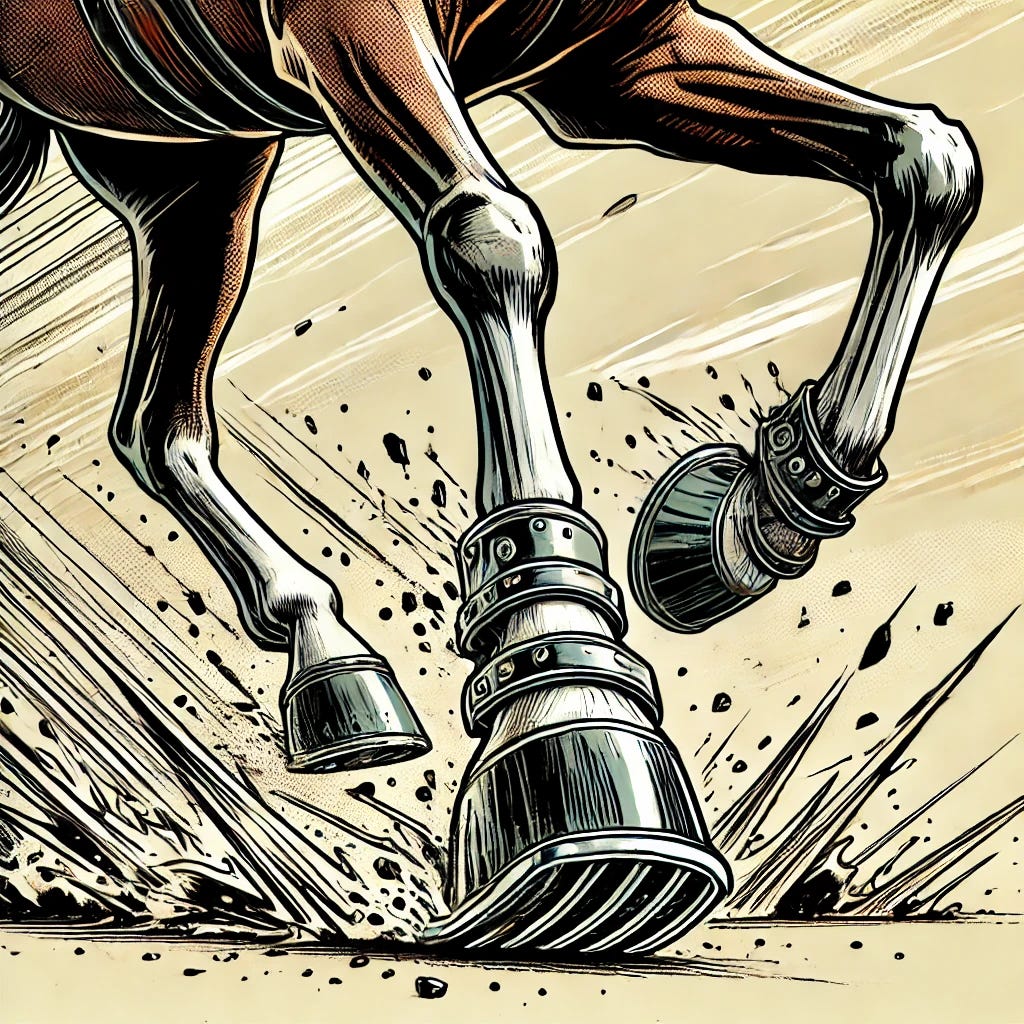Some words we use today seem to be stuck in time. Like a trilobite preserved in volcanic ash so humans could look at it hundreds of millions of years later, language leaves us these little fossil words in some of our most common phrases.
There’s a visual version of this, too. We call them skeuomorphs, and you can see them in floppy disc icons when you click to save something, or when you drag those files into what looks like a physical manila folder.
This tendency can be explained by our comfort in tradition; changes come about slowly and unevenly in society, and these vestiges of the way things used to be tend to tether older generations to the current culture as it evolves, reminding them that new ideas have built on ideas from the past.
Some of the fossil words can fly under the radar so much that we don’t even notice they’re there. Take the common phrase by and large, for instance. When you pause to consider how that sounds, you notice something funny right away. How are the words by and large related?
We usually mean something like generally speaking or considering everything when we use by and large today, but it started out as a nautical description. By means to sail into the wind, so it involved a skilled maneuver of wiggling at the right angles to break through the barrier. By contrast, large meant the opposite—using the wind at your back to sail at full speed.
A ship that could sail by and large was both maneuverable and powerful. This phrase, then, came to serve as a description for anything that was complete and capable. Over time, this shifted to mostly complete and capable, or generally speaking.
High and dry might be even more common than by and large, and it too has nautical origins. If a ship had run ashore, the higher up on the beach it was, the more likely it was to be stuck—and dry. A ship that was both high and dry had little hope of returning to the ocean.
These seaworthy phrases remind us of just how important the ocean has been to the expansion of the English language. At one point during the early 19th century, the British Empire controlled roughly a quarter of the world’s land, and it relied completely on its supreme navy to control the seas… and the trade.
Another antiquated method of transportation gives us another great fossil phrase: run roughshod over. Today, this means something like to behave ruthlessly or callously, without regard for the people you’re metaphorically stepping on.
This hearkens straight back to the original meaning, where horses were shod (shoed) with scraps of metal and even stray nails in order to give them better purchase on the ground. These were like cleats for horses, but about a dozen times more brutal. Running roughshod meant mangling whatever (or whomever) was in the way.
Similarly, hold your horses brings us back to a time when horses represented the best method of land transportation available. Putting the cart before the horse reminds us of a time when we needed to know this particular order of operation by heart.
Trains took over from horses as the fastest and most effective way to get across land, and we have lots of these now-antiquated phrases too. Someone might go off the rails and behave erratically, or they might get railroaded if they’ve made a few enemies.
I can see a few of the phrases that are currently in use today becoming fossil phrases. Is backseat driver going to still be a real thing once cars mainly drive themselves, and there’s no longer a back seat? My guess is that yes, it will become just like all those horse and train memes. Similarly, pedal to the metal has a really great ring to it, so I have a feeling it’ll stick around long after we’ve stopped driving.
I went pretty far down the rabbit hole of antiquated transportation today, but I bet you can think of a few phrases I didn’t cover. What else comes to mind regarding fossil phrases, transportation or otherwise? What words from the past seem to stick around today in turns of phrase?







Oh yeah, there are a whole bunch of phrases that used to mean something but no longer do.
For instance, "scientific consensus," "civil debate," "shared reality." That kinda stuff.
Aww, shut yer pie hole before you get deep-sixed and are pushing up daisies.
(Yet more fossil phrases.)